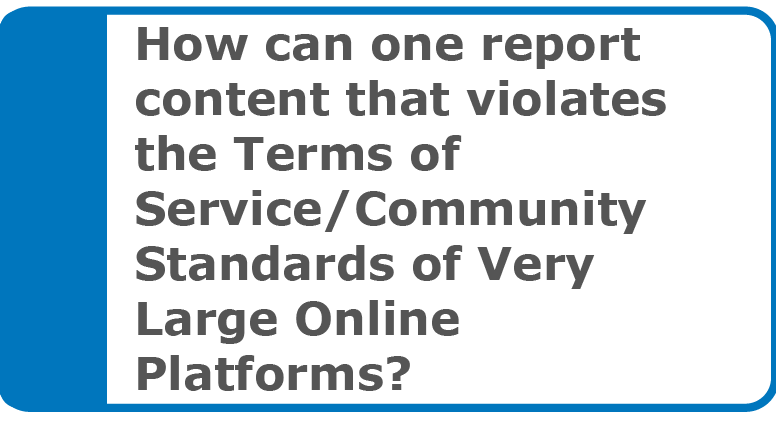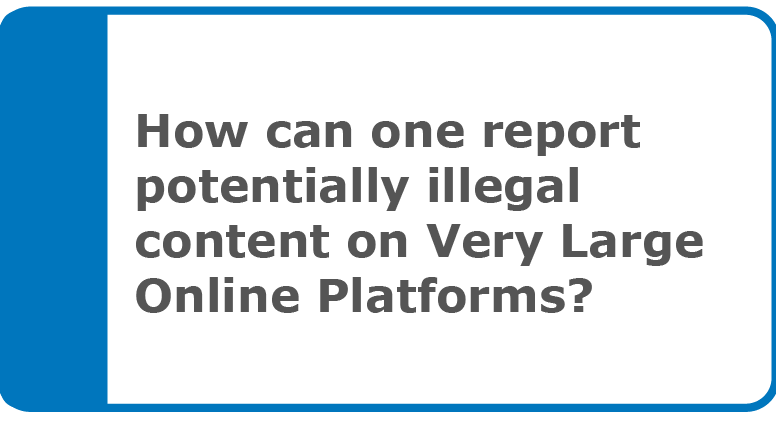 Print
Print
Legal framework for solving complaints concerning the electoral campaign conducted online (including through Very Large Online Platforms)
Persons who identify - both during the electoral campaign and on the eve of the election day - non-compliant online political advertising materials posted on Very Large Online Platforms can submit a complaint to the Central Electoral Bureau (BEC). If the complaint is well-founded, the BEC issues a decision to act against illegal content, transmitted to Very Large Online Platforms by the Permanent Electoral Authority (AEP). Platforms have a 5-hour deadline to remove non-compliant advertising material. The electoral campaign takes place between 04 April – 03 May, 07:00 AM.
During the 2025 Romanian presidential elections, the resolution of complaints regarding the electoral campaign conducted through Very Large Online Platforms, within the meaning provided by Article 3 paragraph (8) of Regulation (EU) 2024/900, including those formulated during the day before and on the day of voting, falls under the exclusive jurisdiction of the Central Electoral Bureau, by derogation from the provisions of Article 42 paragraph (1)of Law no. 370/2004, republished, with the subsequent amendments and completions.
The Central Electoral Bureau, the county electoral bureaus, the district electoral bureaus and the electoral bureau from the polling stations abroad, set up in view of the 2025 Romanian presidential elections, have the status of relevant authorities, within the meaning of Article 4 paragraph (1) letter a) of Law no.50/2024 on establishing national measures for the application of Regulation (EU) 2022/2065 of the European Parliament and of the Council of 19 October 2022 on a Single Market For Digital Services and amending Directive 2000/31/EC (Digital Services Act), as well as amending and completing Law no 365/2002 on electronic commerce.
The Central Electoral Bureau has the authority to resolve complaints regarding the electoral campaign conducted on Very Large Online Platforms (VLOPs), while the county electoral bureau, district electoral bureaus for the municipality of Bucharest, and the electoral bureau for polling stations abroad are responsible for resolving complaints regarding the electoral campaign on other online platforms than VLOPs.
BEC decisions admitting complaints on the online electoral campaign are orders to act against illegal content within the meaning of Article 9 of Regulation (EU) 2022/2065. They must contain the elements provided in Article 9 paragraph (2) letter a) of Regulation (EU) 2022/2065 and are enforceable.
BEC decisions shall be communicated immediately to the Permanent Electoral Authority, in order to be sent to VLOPs, according to Article 3 paragraph 8 of Regulation (EU) 2024/900, under penalty of payment of a fine between 1% and 5% of the turnover of the online platform, if within 5 hours of the notification of the Permanent Electoral Authority, the online platforms does not remove the advertising material in question.
The decisions of the Central Electoral Bureau may be appealed to the Bucharest Court of Appeal, within 48 hours from their publication on the Central Electoral Bureau website.
As a Digital Services Coordinator, ANCOM is the authority responsible for all matters relating to the supervision and enforcement of the DSA Regulation. The role Digital Services Coordinators in all the Member States is defined in the context of the broader ecosystem regarding the integrity of electoral processes, with reference to the obligations incumbent upon online platforms in the context of DSA.
The DSA does not rule on the legality or veracity of online content but it puts in place due diligence mechanisms for online platforms to protect fundamental rights. Therefore, the DSA envisages that online platforms manage users’ content in a diligent, consistent, transparent and lawful manner – and especially observing the fundamental right to freedom of expression and of information – rather than aiming to achieve excessive moderation of online content.
To protect freedom of expression, DSA obliges online platforms to:
- clearly explain how they moderate content in their terms and conditions and apply these rules consistently and fairly;
- provide users with detailed explanations of why their content or account has been restricted or removed;
- create internal complaint resolution systems that allow users to appeal moderation decisions directly to the online platform provider.
As a Digital Services Coordinator, ANCOM is responsible for overseeing the compliance of intermediary service providers - established in Romania or who have a designated legal representative on Romanian territory - with the obligations laid down in the Digital Services Act.
It should be clearly understood that ANCOM`s mandate does not, in any way, extend to content moderation. This is the very reason why complaints regarding illegal content are not resolved by ANCOM, but by the relevant authorities, in other words those authorities with supervisory and control attributions in the respective field. Public institutions or authorities with attributions regarding the supervision of a certain sector or field of activity in the offline environment, also have competences in the online environment, according to the DSA.

Decizia BEC nr. 54d din 26 martie 2025
Listă candidați alegeri prezidențiale 2025
Ghidul de prevenire și combatere a acțiunilor de dezinformare a alegătorilor la alegerile prezidențiale 2025
Legislație

